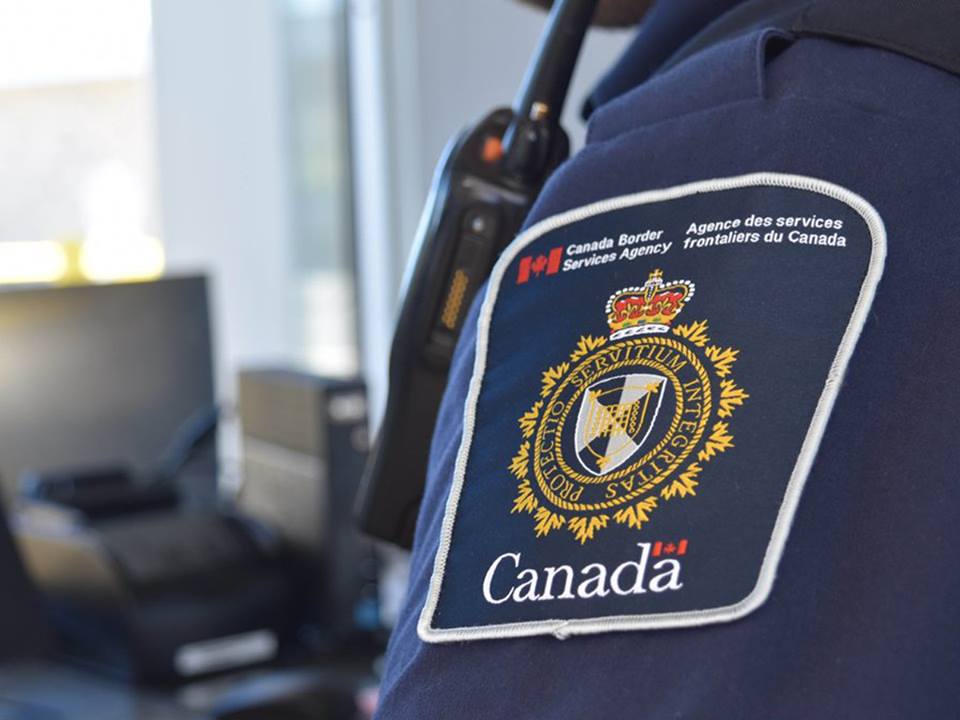Canada News
B.C. man in terror case ordered released by Federal Court but awaits deportation

Hamdan has been in custody since September 2017, when the Canadian Border Services Agency arrested him on the same day he was acquitted of terrorism-related charges based on Facebook posts calling for so-called lone-wolf attacks. (File Photo: Canada Border Services Agency/Facebook)
VANCOUVER — A British Columbia man who glorified terrorism by the Islamic State group in multiple Facebook posts has been ordered released from immigration detention by the Federal Court nearly a year after the Immigration and Refugee Board deemed him inadmissible and a security risk to Canada.
The court upholds a decision made in August by the immigration division of the board, which ordered Othman Hamdan released.
Hamdan has been in custody since September 2017, when the Canadian Border Services Agency arrested him on the same day he was acquitted of terrorism-related charges based on Facebook posts calling for so-called lone-wolf attacks.
“The fact that the immigration division had found Mr. Hamdan to be a danger to the public in the context of its admissibility hearing decision the previous year did not require the immigration division to reach a similar conclusion in the detention context as these adjudicate different sections of the (Immigration and Refugee Protection Act),” Judge Alan S. Diner said in a written decision released Tuesday.
The border agency said it would not comment on the court decision until Wednesday.
In upholding the immigration division’s decision, Diner said 25 conditions imposed by the board are reasonable, including that Hamdan live with a friend who was to post a $2,000 bond on his behalf.
Diner cited 38-year-old Hamdan’s good conduct in prison, his admission of wrongdoing in the past, his testimony at detention review hearings that are held for all immigration and refugee board detainees, and by his long-time friend and bondsperson, who he must live with in Enderby, B.C.
He must also abide by a nightly curfew, cannot drive a vehicle or accept a ride from any person, expect with the approval of his bondsperson, be treated for any mental health issues and co-operate with any removal proceedings.
“Quite apart from the lack of violence, Mr. Hamdan was found not to raise any of the other concerns so often confronted by the immigration division, namely regarding flight and identity risks,” Diner wrote.
“The bondsperson understood the prohibition of internet use, including accessing computers at public places such as the library,” he said, adding the board member who made the decision in August “accepted the appropriateness of the bondsperson as someone who would have moral suasion and a strong motivation” to supervise Hamdan’s behaviour.
Diner said Hamdan does not have a history of non-compliance with conditions, including through the investigation stage prior to his arrest at his home in Fort St. John, B.C., in July 2015.
“Terrorism is not an easy subject matter for any tribunal or reviewing court,” Diner said, adding the immigration board member made similar comments during his oral reasons when ordering Hamdan’s release, saying his decision was not a vindication of the ideology Hamdan had expressed in the past.
Hamdan’s Facebook posts, between September 2014 and July 2015, drew the RCMP’s attention following two terror attacks in Canada in 2014, allegedly in support of the Islamic State.
Board official Marc Tessler said in an October 2018 ruling Hamdan was a security risk, and while he did not have a history of violence he “praised lone-wolf attacks, actively promoted the Islamic State, disseminated instructions on how to commit attacks and seems fascinated with the extreme violence the Islamic State demonstrated by possessing Islamic State videos depicting gruesome murders.”
Tessler said Public Safety Minister Ralph Goodale alleged Hamdan became a cheerleader for the Islamic state and the posts amounted to counselling and supporting others to commit terrorist acts in Canada, the United States and other western countries.
Facebook began shutting down sites it identified as supporting the Islamic State but the court heard Hamdan was posting on about 14 accounts.
Hamdan, who was born in the United Arab Emirates and is a national of Jordan, told his trial that his posts offered an alternative news source that provided his followers with another view of events in the Middle East.
He said he entered the United States in 1999 on a student visa and studied electrical engineering.
Hamdan said he converted from Islam to Christianity but faced discrimination following the September 2001 terrorist attacks, so he decided to come to Vancouver and was granted refugee status three years later. He applied for permanent resident status, but his application was declared abandoned.





















